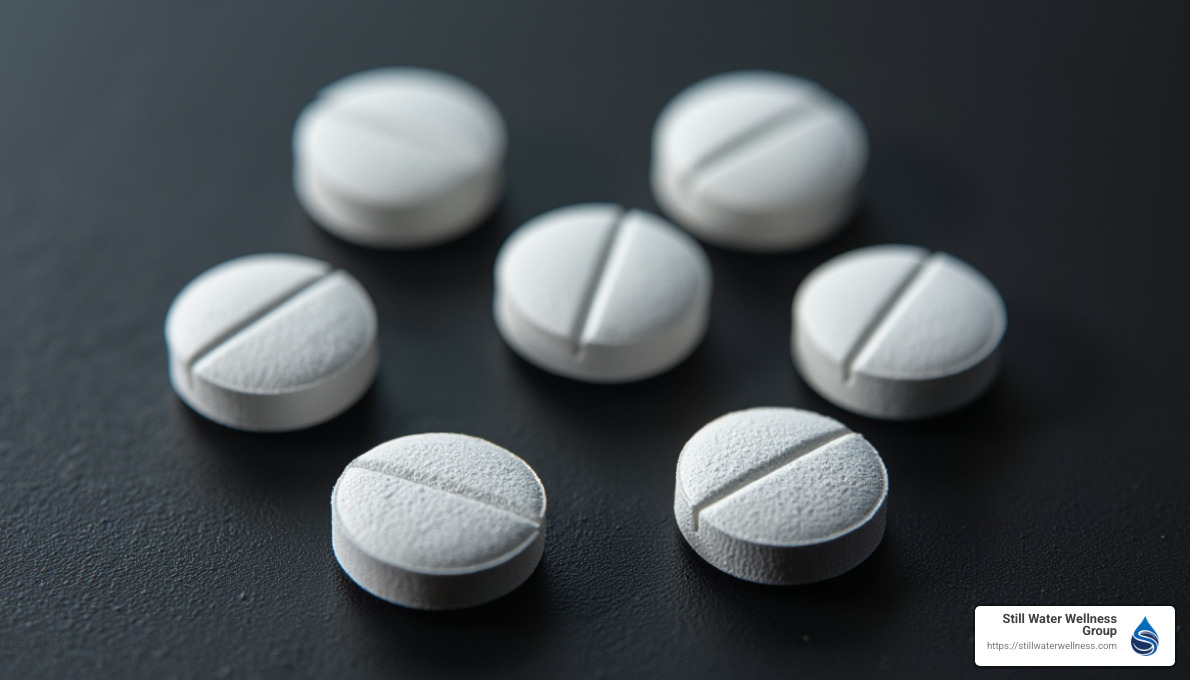Fentanyl withdrawal is a critical concern within the ongoing opioid crisis in the United States. It’s crucial to understand the overwhelming potency of fentanyl, a synthetic opioid that is up to 100 times stronger than morphine. This incredible strength makes it dangerously easy for users to overdose. The unintentional consumption of fentanyl—often laced into other drugs such as Xanax or Oxycontin—has led to a significant rise in overdose deaths.
For those who have developed a dependency, key symptoms of fentanyl withdrawal often include:
- Agitation and anxiety: Common early signs as the body begins to crave the substance.
- Muscle aches: Physical discomfort as the drug leaves the system.
- Abdominal issues: Late-stage symptoms like diarrhea and nausea.
Understanding these withdrawal challenges is the first step towards effective treatment and recovery. As many struggle to break free from the grip of synthetic opioids, recognizing the distinct withdrawal symptoms of fentanyl can help in crafting better treatment responses.

Understanding Fentanyl Withdrawal
Fentanyl withdrawal is a challenging process due to the drug’s extreme potency. As a synthetic opioid, fentanyl binds to the brain’s opioid receptors, altering pain perception and emotional response. Over time, this can lead to opioid dependence, where the body becomes accustomed to the presence of the drug.
Early Symptoms of Fentanyl Withdrawal
When someone dependent on fentanyl stops using it, their body reacts. The early symptoms of withdrawal can be quite distressing and usually begin 8 to 24 hours after the last dose. These include:
- Agitation and anxiety: As the body starts to crave fentanyl, individuals often experience heightened feelings of restlessness and nervousness.
- Muscle aches: Physical discomfort is common as the body adjusts to the absence of the drug. This can feel like intense flu-like symptoms.
Late Symptoms of Fentanyl Withdrawal
As withdrawal progresses, other symptoms emerge, typically peaking within 36 to 72 hours. These late symptoms can persist for up to 10 days or even longer in some cases:
- Abdominal cramping: This can be severe and is often accompanied by other gastrointestinal issues.
- Diarrhea and nausea: These symptoms contribute to dehydration, which can be dangerous if not managed properly.
Managing Fentanyl Withdrawal
Overcoming fentanyl withdrawal is a tough journey, but with the right support and treatment, it is possible. This section will dig into how detoxification, medication-assisted treatment, and support systems can help manage withdrawal symptoms effectively.
Medications for Withdrawal
Detoxification is the first step in managing fentanyl withdrawal. It involves clearing the drug from the body while managing withdrawal symptoms. This process is often best done under medical supervision to ensure safety and comfort.
Medication-assisted treatment (MAT) plays a crucial role in this phase. It combines medications with counseling and behavioral therapies to treat substance use disorders. Here are the main medications used:
- Methadone: This long-acting opioid agonist helps reduce withdrawal symptoms and cravings without producing the high associated with fentanyl.
- Buprenorphine: A partial opioid agonist, buprenorphine eases withdrawal symptoms and cravings by partially activating opioid receptors in the brain.
- Clonidine: This non-opioid medication helps alleviate some withdrawal symptoms such as anxiety, agitation, and muscle aches.

Support Systems and Counseling
In addition to medication, support systems and counseling are vital for successful recovery. These provide the emotional and psychological assistance needed to stay on track.
Self-help groups like Narcotics Anonymous (NA) offer peer support and a sense of community. Sharing experiences with others who understand can be incredibly empowering.
Outpatient counseling allows individuals to receive therapy and support while living at home. It’s flexible and can be custom to fit into daily life, making it a good option for those with commitments like work or family.
Inpatient treatment provides a more intensive level of care. It involves staying at a facility where individuals can focus entirely on their recovery without distractions or temptations from the outside world.
Each treatment setting offers unique benefits, and the choice will depend on individual needs and circumstances. The key is to find a combination that works best for the person in recovery.
By understanding the available options and using a comprehensive approach, overcoming fentanyl withdrawal becomes more manageable. This sets the stage for a healthier, drug-free future.
Conclusion
At Still Water Wellness Group, we understand the unique challenges of overcoming fentanyl withdrawal. Our dedication to providing personalized programs and expert care ensures that each individual’s recovery journey is as smooth and effective as possible.
Our serene setting near Saddleback Mountain and Laguna Beach offers a peaceful environment for healing. Here, our compassionate team tailors treatment plans to meet the specific needs of each person. We believe that no two recovery journeys are alike, and our personalized approach reflects that.
Our programs integrate medication-assisted treatment, counseling, and support systems to address the physical and emotional aspects of withdrawal. From inpatient care to outpatient counseling, we provide the flexibility needed for lasting recovery.
Choosing the right treatment center is a crucial step in overcoming addiction. At Still Water Wellness Group, we are committed to supporting you every step of the way. Our expert care and personalized programs are designed to help you reclaim your life and build a brighter future.
For more information on our comprehensive fentanyl rehab and detox programs, visit our service page. Let us help you take the first step towards recovery today.
References
- What are the fentanyl long term effects?
- How to find fentanyl rehab options in California?
- Top fentanyl rehab center in California
